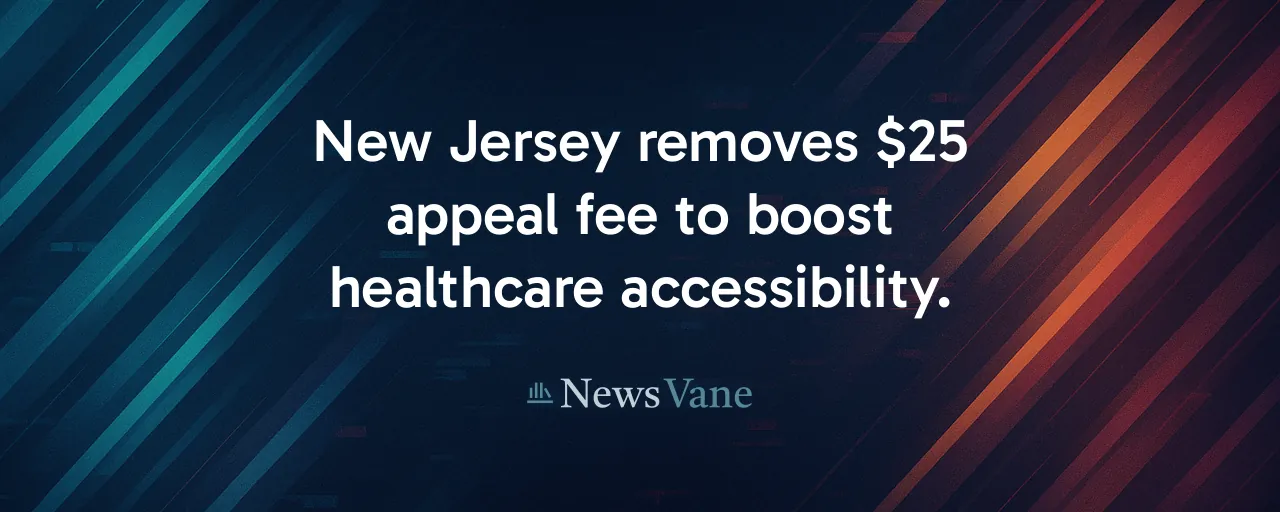A Step Toward Fairness in Healthcare
New Jersey's latest move to eliminate a $25 fee for appealing health insurance denials has sparked widespread attention. Announced on June 30, 2025, by Governor Phil Murphy, this change aims to make the Independent Health Care Appeals Program more accessible to residents. The program allows consumers to challenge insurance carriers' decisions to deny, reduce, or terminate benefits. By removing this cost, the state seeks to ensure that financial barriers do not prevent people from seeking fair coverage.
The decision responds to a growing call for equitable access to healthcare processes. For many, even a small fee can deter action, especially for low-income families or those facing chronic illnesses. In 2024, over 800 insurer decisions were overturned or modified through this program, proving its value. However, the question remains: will this change truly level the playing field, or does it risk unintended consequences for consumers and insurers alike?
This development reflects a broader effort to empower individuals against complex insurance systems, moving beyond simply removing a fee. The program, administered by the Department of Banking and Insurance, offers an independent review by experts who can mandate coverage if a denial is deemed unjust. With this change, New Jersey is betting on fairness, but the success of this policy hinges on how it's implemented and whether it delivers real results.
Why the Fee Mattered
At first glance, a $25 fee might seem minor. However, research shows that even small costs can reduce participation in appeal processes by up to 30 percent, particularly among low-income groups. Before the law, New Jersey offered waivers for financial hardship, but many eligible consumers were unaware of this option. This lack of awareness left some residents unable to challenge denials, potentially missing out on critical care.
The Independent Health Care Appeals Program, established under the 1997 New Jersey Health Care Quality Act, ensures consumers can seek an external review when insurers reject claims. In 2024, independent reviewers overturned or modified over 40 percent of appealed cases, highlighting significant errors in initial insurer decisions. Removing the fee aims to make this process more inclusive, ensuring that all residents, regardless of income, can access this safeguard.
Balancing Access and Accountability
While the fee elimination promotes access, some worry it could lead to a surge in appeals, including those with little merit. Studies from other states show that when appeal fees drop to zero, filings can spike without a proportional increase in successful outcomes. Insurers, who bear the cost of these reviews, might pass administrative expenses to consumers through higher premiums. Estimates suggest every $1 million in added costs could raise premiums by 0.02 to 0.05 percent.
To address this, experts emphasize the need for efficient case screening. Preliminary reviews could filter out low-merit claims, ensuring the system remains focused on legitimate disputes. Transparent data on appeal outcomes could also encourage insurers to improve initial decisions, reducing the need for external reviews. These measures could balance accessibility with accountability, protecting both consumers and the system's sustainability.
Lessons From the Past
New Jersey's action builds on decades of consumer protection efforts. The 1997 Health Care Quality Act laid the groundwork for external reviews, while the 2010 Affordable Care Act set national standards. In 2018, the state tackled surprise billing, and in 2023, it passed the Ensuring Transparency in Prior Authorization Act to streamline approvals. Each step aimed to make healthcare more navigable for residents.
Historically, small barriers like fees have disproportionately affected vulnerable groups, such as the elderly or chronically ill. Peer-reviewed studies show that external review programs nationwide overturn 30 to 55 percent of denials, underscoring their importance. By learning from these trends, New Jersey can refine its approach, ensuring the fee elimination delivers meaningful change without straining resources.
Practical Steps for Success
For the policy to work, implementation is key. The Department of Banking and Insurance needs to update application forms, enhance outreach, and ensure independent reviewers can handle increased caseloads. Multilingual assistance and user-friendly digital tools could further boost participation, especially for underserved communities. Insurers, meanwhile, need to adjust systems to comply with the new rules and provide clearer denial explanations.
Consumer education is equally critical. Many residents remain unaware of their appeal rights or how to navigate the process. Targeted campaigns could bridge this gap, empowering people to use the program effectively. By combining these efforts, New Jersey can maximize the policy's impact, ensuring it serves those who need it most.
Looking Ahead
New Jersey's decision to eliminate appeal fees marks a significant step toward equitable healthcare access. By removing financial barriers, the state empowers residents to challenge unfair insurer decisions, potentially improving health outcomes. However, the policy's success depends on careful execution, from efficient case handling to robust consumer outreach.
Stakeholders could further strengthen the system by regularly reviewing program data to assess costs and outcomes. Encouraging insurers to publish appeal success rates might drive better initial decisions, reducing disputes. Joint advisory panels with consumers and insurers could also foster collaboration, streamlining resolutions without formal reviews.
Ultimately, this change signals a commitment to fairness in healthcare. If implemented thoughtfully, it could serve as a model for other states, proving that small policy shifts can make a big difference in people's lives. The challenge now is to turn this promise into reality, ensuring every resident has a voice in their care.
